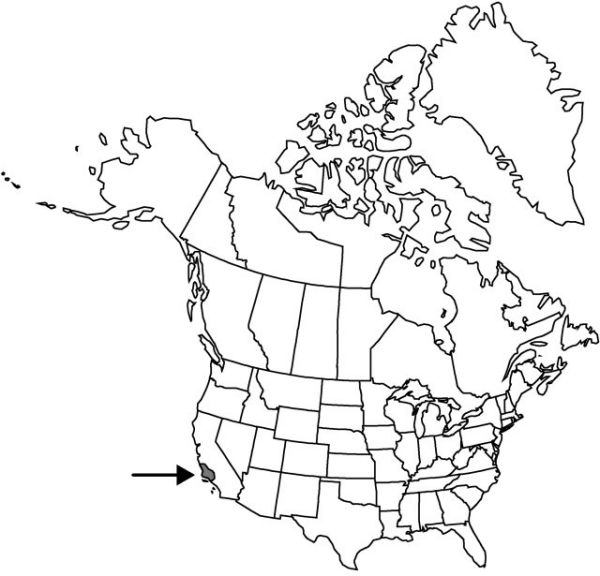Difference between revisions of "Fritillaria ojaiensis"
Bull. S. Calif. Acad. Sci. 21: 41, plate 2. 1922.
FNA>Volume Importer |
FNA>Volume Importer |
(No difference)
| |
Revision as of 20:31, 24 September 2019
Bulb scales: large 3–5; small 1–3. Stem 4–7 dm. Leaves in 1–3 whorls of 3–5 leaves per node proximally, alternate or opposite distally, 13 cm, usually shorter than inflorescence; blade linear to narrowly lanceolate; distal leaves usually ± equaling proximalmost leaf. Flowers nodding; tepals dull greenish yellow with scattered to profuse dark dots, broadly lanceolate, 1.5–3 cm, apex not recurved; nectaries prominent or obscure, paler in color than rest of tepals, widely elliptic to ± diamond-shaped, 1/3 tepal length; style obviously branched for 1/2–2/3 its length, branches longer than 1.5 mm. Capsules winged. 2n = 14.
Phenology: Flowering Feb–Apr.
Habitat: Rocky slopes, river basins
Elevation: 300–500 m
Discussion
Of conservation concern.
Fritillaria ojaiensis is considered rare and endangered in California. It is closely related to F. affinis, and is sometimes considered synonymous with it.
Selected References
None.
